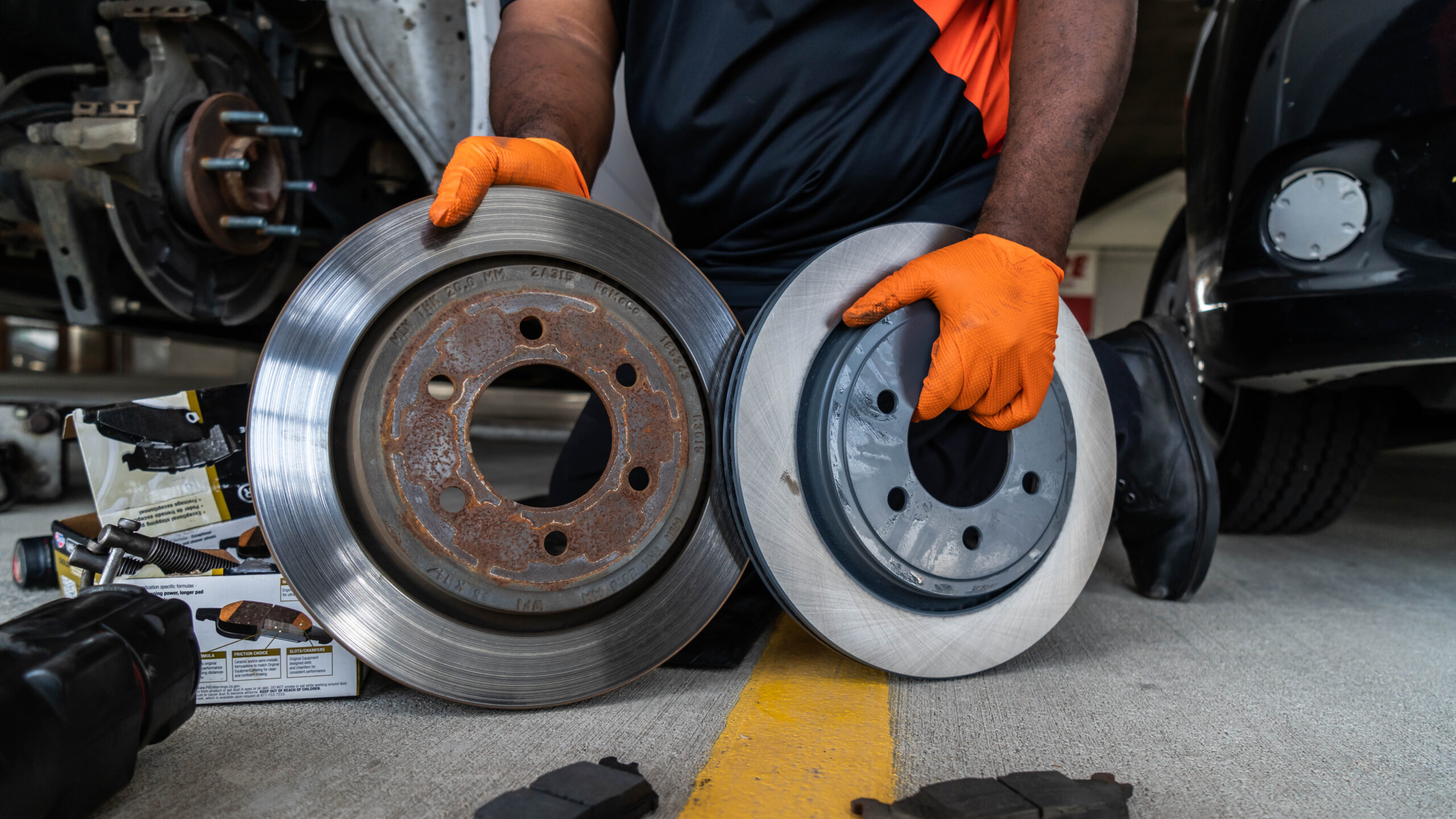One of the most important safety features of your car is its brake system, and the brake pads are a big part of making sure that safety. Knowing when to get new brake pads can keep you from getting into an accident and save you a lot of money on fixes. For effective stopping power and peace of mind on the road, brakes need to be inspected regularly and replaced when they wear out.
Understanding the Role of Brake Pads
Brake pads create the friction necessary to slow down or stop your car when the brake pedal is pressed. They press against the brake rotors, and over time, the material wears down due to heat and friction. As this wear continues, the pads become less effective, which can compromise your ability to stop quickly and safely. If you notice the signs of worn-out brake pads early on, you can keep your car running well and avoid damaging other parts of the brake system.
Common Signs That It’s Time for Replacement
There are several indicators that your brake pads may be reaching the end of their lifespan. A screaming or screeching sound when you press the brakes is one of the most common ones. This noise often comes from a small built-in wear indicator designed to alert drivers when the pads are getting thin.
Another warning sign is a grinding noise, which usually indicates that the pads have worn down completely, causing metal-to-metal contact with the rotors. At this stage, immediate attention is necessary because driving with metal-on-metal friction can severely damage your braking system and increase repair costs.
You might also feel vibration or pulsation in the brake pedal when braking. This could be a sign that the pads are unevenly worn or that there’s an issue with the rotors. Reduced responsiveness, longer stopping distances, or a brake pedal that feels soft or spongy can also point to worn-out brake pads or other related problems.
How Often Should You Replace Them?
The lifespan of brake pads can vary based on your driving habits, vehicle type, and the materials used in the pads. On average, most brake pads last between 30,000 and 70,000 miles. However, frequent stop-and-go driving, carrying heavy loads, or driving in hilly terrain can cause faster wear.
Regular maintenance checks are crucial. It’s a good idea to have your brake system inspected during every oil change or routine service appointment. Mechanics can measure the thickness of the pads and recommend replacement before they become too thin. Ignoring these checks might lead to reduced performance and more expensive repairs later on.
Why Timely Replacement Matters
Delaying brake pad replacement can compromise your safety and the integrity of your car’s entire braking system. Worn-out pads can cause the rotors to overheat, warp, or become damaged beyond repair. This not only makes service costs go up, but it also makes it more likely that the brakes will stop working in an emergency.
Replacing brake pads at the right time improves braking performance, reduces stopping distance, and enhances control while driving. It also ensures smoother operation and prolongs the life of other brake components like rotors and calipers.
Trusting Professionals for Brake Care
While some car owners attempt to change their own brake pads, professional service ensures accuracy and safety. Certified technicians use specialized tools to inspect the entire system and replace worn parts correctly. For reliable and expert brake service, drivers can visit https://alleuropeanautorepair.com/brake-repair/, where skilled professionals offer quality brake inspection and replacement tailored to various vehicle types, including European models known for their precision engineering.
Final Thoughts
The most important safety feature on your car is its brakes, and the state of its brake pads has a direct effect on how safely you can stop. If you listen for warning signs like squealing, grinding, or vibrations and have professionals check your car regularly, you can avoid issues before they happen. Not only will replacing your brake pads on time keep you safe, it will also keep your car in great shape for years to come.
